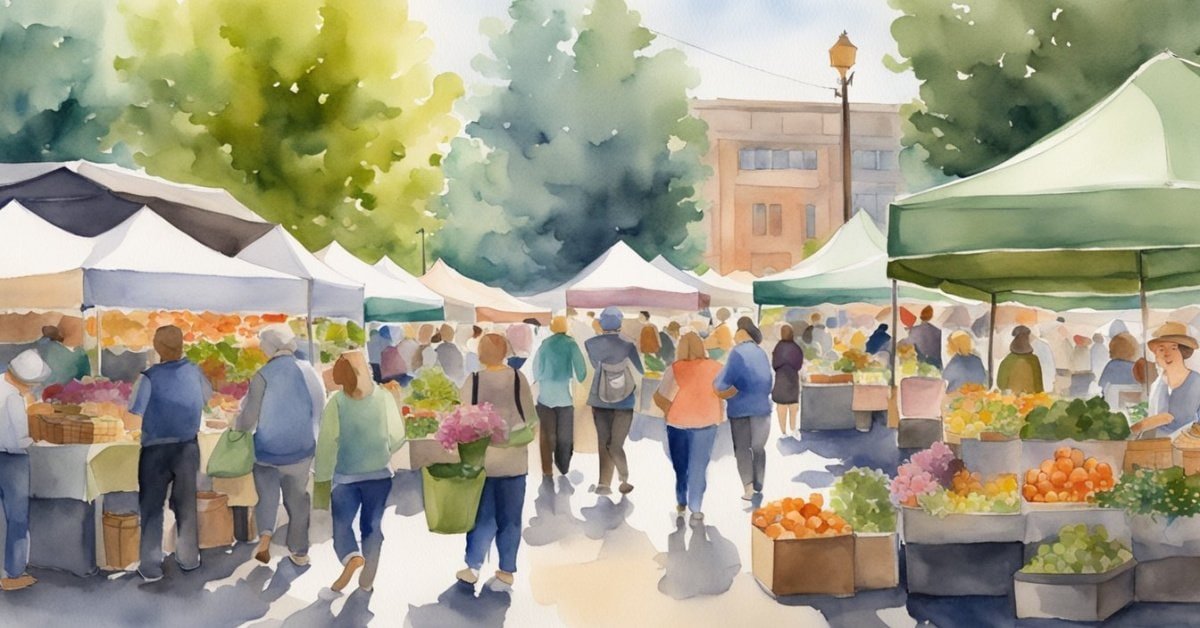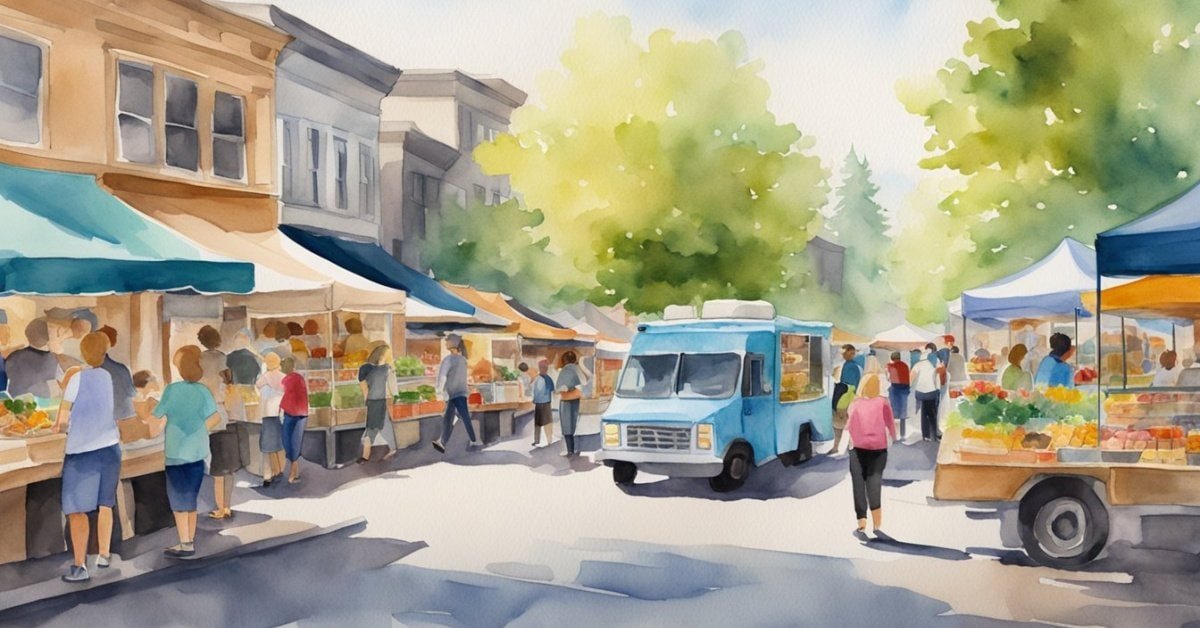Eugene, Oregon is a popular spot for people looking for a mix of city life and nature. The city is known for its friendly neighborhoods, outdoor activities, and an artsy downtown with plenty of local restaurants and markets.
Anyone thinking about moving to Eugene should know it offers a unique balance of urban convenience and easy access to the outdoors.

The cost of living is higher than in some smaller towns, especially when it comes to housing. Eugene’s strong community feel, walkable streets, and many parks continue to bring in people from all over.
For families, schools are considered good, and the area is known for its bike-friendly culture. There is no sales tax in Eugene, which is a plus for anyone planning a big move.
Winters are mild but can be rainy, so it helps to prepare for wet weather. To get a better idea about the local lifestyle and what people enjoy about living there, check more details from this moving to Eugene guide.
Understanding Eugene, Oregon

Eugene is a mid-sized city in Oregon known for its vibrant community, rich culture, and strong focus on nature. People moving here often notice the relaxed atmosphere, support for local businesses, and plenty of opportunities to enjoy the outdoors.
Eugene’s Unique Culture
Eugene is well known for its arts scene, active music community, and strong love for outdoor activities. The city often hosts festivals, live music, and art shows that draw crowds from many backgrounds.
People living here often value creativity, local products, and healthy living. Sports are a big deal too.
The University of Oregon brings a college-town energy, and many enjoy cheering on the Ducks at football and track events. Outdoor lovers will appreciate miles of biking and walking paths along the Willamette River and the city’s parks.
Eugene is also home to a range of local restaurants, craft breweries, and farmers markets. There’s a focus on sustainable, farm-to-table food options.
This blend of art, sports, and mindful living shapes Eugene’s welcoming and interesting vibe.
Community and Lifestyle
The community in Eugene is known for being open-minded and friendly. People often get involved in local causes, neighborhood gatherings, and outdoor groups.
Many neighborhoods have a strong sense of community, offering block parties and plenty of opportunities to meet neighbors. Eugene’s lifestyle leans toward sustainability, with support for eco-friendly habits like biking or using public transportation.
The city encourages recycling, composting, and green energy. Residents frequently shop at local co-ops and enjoy the outdoors, whether it’s hiking, biking, or exploring nearby beaches.
There are many resources available for newcomers to help them feel at home.
Cost of Living and Housing

Living in Eugene, Oregon usually comes with a lower cost than bigger cities in the state, but some things remain pricey. Housing is often the biggest expense, and rental options can change fast depending on demand.
Housing Market Overview
Eugene’s housing market is more affordable than cities like Portland, but prices have still gone up in recent years. The cost of living in this Oregon city is about 8% lower than the state average, but housing alone is still about 21% more expensive than the national average.
This means buying a house might take more financial planning. The city’s neighborhoods vary in price.
Areas near the University of Oregon can be more expensive, while some neighborhoods farther from downtown may have lower prices. To maintain the same standard of living as someone in Portland, residents would need about $54,427 per year.
For some families, child care and utilities can add to monthly costs. More market facts and comparison figures are available at this housing overview.
Rental Options and Availability
Renting in Eugene can be competitive, especially during college semesters. There is a mix of apartments, houses, and duplexes, but finding a good deal can take time due to high demand.
Rental prices are higher near the University of Oregon and downtown. Other neighborhoods usually offer slightly lower rents and a quieter setting.
Average rental prices change often. A single-bedroom apartment in the city center can cost more than living a few miles out.
Some places include utilities, but many do not, so it is important to check the details of each lease. For a more detailed breakdown and tips on costs associated with relocating, visit this moving to Eugene guide.
Weather in Eugene

Eugene is known for its mild weather, frequent rain, and green scenery. Winters are cool and damp, while summers are warm but not usually extreme.
Typical Rain Patterns
Rain is a big part of life in Eugene. The city gets about 41 inches of rainfall each year, which is higher than the U.S. average.
On average, Eugene sees precipitation on 151 days annually, so rain boots and jackets are common in most homes. Most of the rain falls between November and March.
During this time, cloudy skies and misty mornings are typical. Thunderstorms are rare, and heavy downpours don’t last long, but the frequent drizzle makes the area green and lush.
Snow is not common, with only about 3 inches a year and some winters missing snow entirely. Trees and gardens thrive in these wet conditions, making outdoor spaces almost always green and vibrant.
More details are available about Eugene’s annual rainfall and climate.
Summers and Winters
Summers in Eugene are usually warm and comfortable. Daytime highs in July and August are often in the low- to mid-80s°F (27–29°C).
Nights tend to be cooler, so air conditioning isn’t always needed. Most summer days are sunny and dry, with only a small chance of rain.
This dry stretch is perfect for hiking, biking, and festivals. Winters are much cooler and damp.
Average high temperatures in December and January are usually in the 40s°F (4–9°C), while nighttime lows rarely fall below 25°F (-4°C). The cold is rarely harsh, but the steady rain means warm, waterproof clothing is smart.
Eugene doesn’t get much ice or snow, so daily life continues smoothly during the winter months. To read more about Eugene’s seasonal temperatures and weather, check out local guides.
Navigating Eugene and Nearby Cities

Getting around Eugene is simple and usually hassle-free. Residents enjoy light traffic, and nearby cities like Portland and Springfield are easy to reach for work or fun.
Traffic Insights
Eugene is known for its low traffic levels. Even during the busiest parts of the day, most commutes are short and smooth.
It takes about 15 to 20 minutes to cross town by car. This is a big plus for those moving from larger cities with heavy traffic.
Many people bike or walk in Eugene. The city has dedicated bike lanes and walking paths.
Public transportation is available with the Lane Transit District (LTD) buses running across town. For people working from home, traffic is rarely a concern.
Roads are especially clear outside of peak hours. See more details on local travel in this Eugene relocation discussion.
Portland and Springfield Connections
Springfield is Eugene’s neighbor, located just a short drive to the east. The two cities share many services and amenities.
Traveling between them is fast, often taking less than 10 minutes by car. Some people live in one city and work or study in the other.
Portland is much larger and sits about two hours north by car, using Interstate 5. Many residents visit Portland for big-city attractions, shopping, or flights from Portland International Airport.
Driving to Portland can get busy on weekends or holidays, so timing and planning are helpful.
Getting Around Town

Eugene is known for its easy transportation and strong focus on outdoor activity. The town offers several ways for people to get where they need to go without much hassle.
Bike Paths and Outdoor Recreation
Eugene is one of the most bike-friendly cities in Oregon. Wide, paved bike paths run through city parks and along the Willamette River, making biking a convenient choice for commuting or recreation.
Many people use the city’s well-marked bike lanes to reach work, shops, and the University of Oregon. The Ruth Bascom Riverbank Path System is popular for its scenic views and links many neighborhoods to downtown.
Local buses have bike racks, which helps people combine cycling with public transportation. In addition, the city has plenty of parks, hiking trails, and green spaces for residents who want to get outside and move around.
Learn more about Eugene’s focus on biking and recreation at this moving to Eugene guide.
Moving to Eugene: Essential Tips

Finding the right moving company and planning packing services can save money and stress. Good choices help keep belongings safe and make the move smoother in Eugene.
Choosing Professional Movers
Hiring professional movers means less heavy lifting and worry. It’s wise to look for companies with experience in both local and long-distance moving, like Cross Town Movers, who have a strong reputation in Eugene.
Key Things to Check:
- Licensing and insurance
- Reviews and ratings from past customers
- Transparent pricing with no hidden fees
Local moving services know the city roads and traffic patterns. They can move apartments, houses, or offices around Eugene safely, and will understand building rules or parking.
Long-distance moving companies can manage out-of-state moves with special equipment and tracking. Booking early, especially during summer, ensures better prices and availability.
Many people prefer movers that provide both loading and unloading, which keeps the process easy.
Packing and Unpacking Services
Packing services help protect items from breaking. They bring boxes, tape, and padding to safely pack everything from dishes to TVs.
Many movers label the boxes and make an inventory sheet, so nothing gets lost. Some companies provide full packing or just help with fragile things.
Unpacking services are helpful after arrival, too. Movers can place boxes in the right rooms, unwrap items, and even set up basic furniture.
When comparing services, ask if materials are included in the price. Good companies will explain what they pack and how they handle delicate items.
Be sure to tell them about special items like pianos, art, or pets.
Education and University Life

Eugene is known for its excellent public schools and its vibrant college scene. The presence of a major university shapes the local culture and opportunities.
University of Oregon Overview
The University of Oregon is at the heart of the community. It’s home to over 20,000 students and is famous for its green campus and spirited athletics, especially the Ducks football team.
The university attracts people from all over the country, making the city feel young and dynamic. Many community events and local traditions are tied to the university.
Families moving to Eugene appreciate the wide range of educational resources and the frequent public events on campus. Learn more about campus life, events, and the university’s impact on the city by visiting this University of Oregon overview.
Sustainability and Local Services

Eugene is well-known for its strong focus on green living and community care. Efforts around recycling, waste, and environmental programs stand out, making it simple for residents to play a role in sustainability.
Recycling, Dumps, and Waste Management
Eugene offers curbside recycling and compost pickup to most homes. The city collects glass, paper, cardboard, and certain plastics right from the curb.
Hazardous waste and bulky items like furniture or electronics need a trip to a local dump or special collection day. The area has multiple landfill and dump locations, including the Glenwood Transfer Station.
Residents pay by load size or item. E-waste and appliances are often accepted for recycling.
Eugene also holds annual “special collection” events where items like paint, batteries, or chemicals can be dropped off safely. The city encourages everyone to participate in sustainable waste management programs.
Education is a key part of Eugene’s approach. New residents are given guides when they set up utilities.
The city’s website offers clear recycling rules. This makes it easy for families to know where and how to recycle or dispose of things properly.
Addressing Challenges in Eugene

Eugene faces some challenges, especially around homelessness and the community response. It’s helpful for newcomers to understand what to expect and how local resources work.
Homelessness and Community Support Resources
Homelessness is visible in many parts of Eugene, especially around downtown parks and bus stations. Some neighborhoods may see more tents or camps than others.
Eugene has a range of community support services. Local groups, such as ShelterCare and the Egan Warming Center, provide shelter, food, and health support to people in need.
The city also supports transitional housing and mental health resources. Residents can find information about donating, volunteering, or seeking help through city websites or local community guides about moving to Eugene.
The community often comes together to help. Challenges remain as the population grows and housing costs increase.





